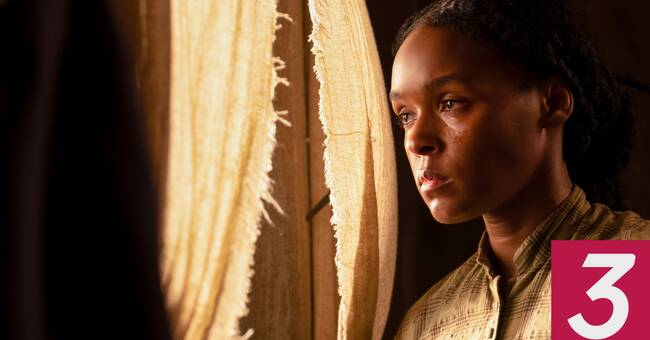The Latin term
ante bellum means about before the war, more specifically the American Civil War that took place between the North and South states in the late 19th century, but the term also refers to the type of cotton plantations where black slaves suffered and died.
And that's where this story begins, as an almost as cruel counterpart to Steve McQueen's trauma drama 12 years a slave, or ... possibly Quentin Tarantino's Django Unchained is closer to Antebellum and its theme of revenge.
In
any case, the
focus is on
a wounded woman named Eden, who is forced to be the southern governor's sex slave, at the same time as she and some fellow prisoners plan to escape the abominations of the plantation.
Cut to the present where we follow the upbeat and combative author Veronica Henley, played by the same actress (Janelle Monáe), during a day where she lectures on gender equality and black liberation, hangs out with friends and has a bad conscience for neglecting her little nice family - the few scenes with husband and children are a bit "lovely".
And in her heels she has a young, visibly disturbed woman with evil intentions.
Antebellum testifies
that the war is still going on.
That African Americans still suffer in a nation where structural and everyday racism is inherited from generation to generation.
The theme is important, and not unusual in contemporary fiction, but the feature film debutants (director and screenwriter) Gerard Bush and Christopher Renz, serve it with a twist: let the story go from brutal thriller to social drama about racism, and back again - in a rather cheerful and review-contempt commuting.
The third act is at the same time the film's strength and Achilles heel.
We get a turn that in any case not the undersigned saw coming, which makes me jump to the cinema.
It is effective and surprising, which goes a long way, but once it has sunk in and the brain has time to set the old premise against the new, it also feels a little too unlikely.
But okay, a film with a slightly allegorical touch may well have a little looser reins, and an entertaining construction it is without a doubt.
It would be no
big surprise if the duo got inspiration from Jordan Peel's smart Get out;
the thinking is similar and the execution is almost as crazy, but in this case this is Get outs' more affluent little brother.
The film's two game plans, the thriller and the social drama, ultimately give a slightly unfocused impression, where neither of them has time to deepen properly.
But it is still difficult not to like filmmakers who have a case and at the same time dare to take the turns.
Really.

